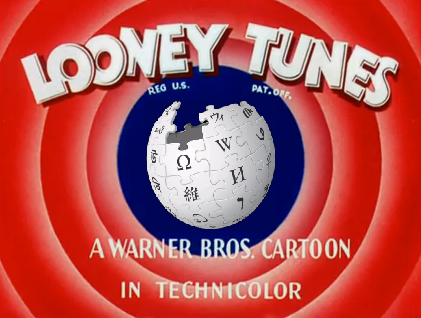What Is the Mandela Effect and Why Does It Feel So Real?

Countless individuals mistakenly think, the logo of the famous Warner Brothers cartoons, 'Looney Tunes,' is spelled as 'Looney Toons.'
"There are three sides to every story." This has been what film producer Robert Evans has been famous for, and these sides, he claims, includes "your side, my side, and the truth."
In some way, Evans may be right as some people can wrongly create fake "or pseudo memories." This case, according to research, is called the "Mandela Effect."
This takes place when a big group of individuals believes an incident happened when it actually did not. The Mandela Effect has many different examples in today's culture.
This particular condition is called such when self-identified "paranormal consultant," Fiona Broome explained in detail how she recalled then president of South Africa, Nelson Mandela. He died in prison in the 80s decade. However, some reports said, "Mandela lived until 2013."
Relatively, Broome could explain recalling media coverage of the leader's death, and even his widow's speech about his death. Yet, as reported, none of it took place.
ALSO READ: Flash Fire Igniting During Surgery: Know How it Happens and How to Prevent It
Combined Memories that were Never Real
One more way to define and explain the Mandela effect is to combine memories that actually never happened for real, also known as "collective false memories."
Many people, jointly always say specific sayings or memories a certain way when, in real life, what's true is far "different from the memory."
Reports indicate that conspiracy theorists believe that this particular condition is an instance of substitute universes that exist in society today.
Nevertheless, medical experts have a totally contrasting description of memory, and the manner memories, even though bright, can be fake or false.
Some doctors trust that the Mandela effect happening to people is a form of the so-called "confabulation."
An Honest Lying
According to experts, a typical correlation of confabulation as "honest lying." This transpires when an individual is creating a "made-up" memory but not intending to deceive others by telling a lie.
Instead, he is trying to fill in gaps or spaces in his own memory. Many examples of this condition are somewhat close to original or actual memory.
Some scientists believe that those individuals, even the large group ones, use this "honest lying" to recall what they feel and believe is most possibly, the order of events.
Symptoms of this condition may include remembering something like a bit different in either appearance or wording as it originally had. Another sign is that a big group of individuals recalling a similar way of remembering.
DON'T MISS THIS: Eating Too Much Wasabi Linked to 'Broken-Heart Syndrome': Here Are Some Facts Regarding the Rare Condition
Some Examples
Most of the time, people are so bothered to know how they and more other individuals, recall a particular incident, not exactly how they remembered it.
Here are some occurrences of the Mandela Effect:
Kit Kat Chocolate
For someone who has just had an existential disaster or predicament about the reality that there is no hyphen between the words "Kit" and "Kat," he is not alone, because they are not actually hyphenated.
Famous "Mirror, Mirror on the Wall" Saying
Many people do not know that this line was not an original statement in the famous children's story, Show White. In reality, what the Wicked Queen said was, "Magic mirror on the wall."
Famous Peanut Butter Label
One of the most popular peanut butter labels is Jif. However, a lot of people recall it as slightly different, particularly as "Jiffy."
Looney Tunes, or Looney Toons?
Countless individuals mistakenly think the logo of the famous cartoons of Warner Brothers, "Looney Tunes," spelled as "Looney Toons."
IN CASE YOU MISSED THIS: Can the Human Body Brew Beer? Here's What You Need to Know About Auto Brewery Syndrome
Jul 17, 2020 08:31 AM EDT





